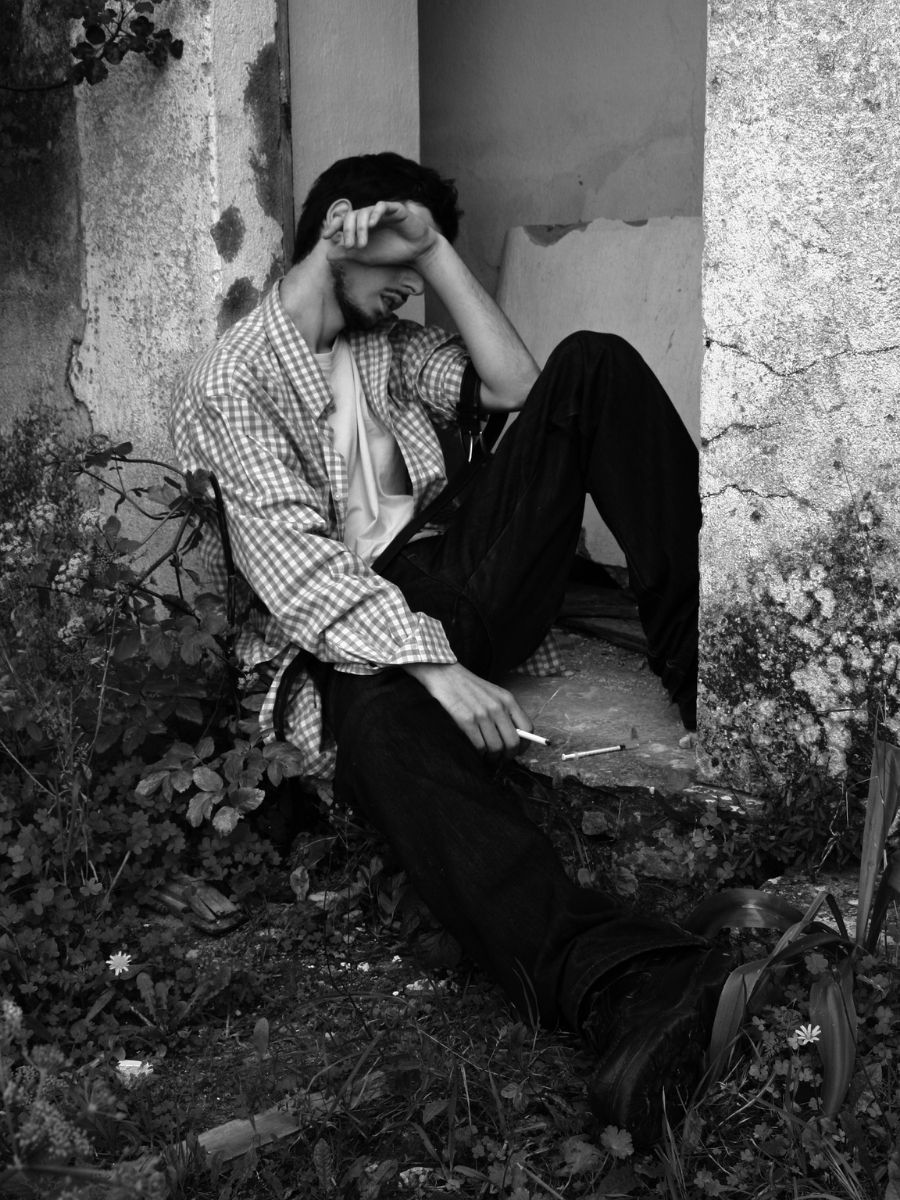About Addiction
Drug addiction often starts with experimental substance use in social settings. While virtually any substance can be abused, some drugs carry a higher risk of dependency and addiction than others. It’s important to identify instances of substance abuse early on, so intervention can occur before addiction takes hold.
There’s no question that substance use and abuse are widespread in the US. Per 2013-2015 data from NIDA’s National Survey of Drug Use and Health, 65.7 percent of individuals 12 and older used alcohol the prior year, 13.5 percent used marijuana or hashish, and 17.8 percent reported using illicit drugs. In their lifetime, 81 percent of those surveyed reported drinking alcohol, 44 percent said they smoked marijuana or hashish, and 48.8 percent had used illicit drugs.
The longer one uses a substance, the harder it is to stop without experiencing cravings and withdrawal symptoms. As a result, recognizing the signs of drug addiction sooner rather than later is important. There are common signs of habitual drug use across all substances as well as signs that are unique to the type of substance abused.

General Signs of Drug Addiction
If a person is abusing any drug, there are some general signs to look for. These include:
- Drastic changes in relationships
- A noticeable lack of energy when performing daily activities
- Spending more money than usual or requesting to borrow money
- Issues with financial management, such as not paying bills on time
- Changes in appetite, such as a decreased appetite and associated weight loss
- Bloodshot eyes, poor skin tone, and appearing tired or run down
- Defensiveness when asked about substance use
- Difficulties at school, disinterest in school-related activities, and declining grades
- Poor work performance, being chronically late to work, appearing tired and disinterested in work duties, and receiving poor performance reviews
- Changes in physical appearances, such as wearing inappropriate or dirty clothing and a lack of interest in grooming
- Altered behavior, such as an increased desire for privacy
If you or your loved one are exhibiting signs of addiction but you don’t know where to turn, We Level Up dual diagnosis rehab Washington can help. Our fully licensed team of medical providers and network of credentialed treatment facilities have helped thousands of people get back on their feet and lead a life in recovery. We offer best-in-class care for substance use disorder and co-occurring mental health disorders, treating the whole patient and setting them up for a lifetime of success. Take the next step by contacting us today.
Signs of Drug Addiction in Adolescents
While overall moodiness can simply be part of adolescence and the teen years, drug use is generally signified by more drastic changes in mood or behaviors in this age group. Per the National Institute on Drug Abuse (NIDA), signs of drug use in adolescents include acting withdrawn, tired, depressed, or hostile.
Parents should take note when a child starts associating with a different group of peers, as changes in peer groups may be linked with substance use. An adolescent using drugs might also miss classes, skip school, or change their eating or sleeping habits. Parents can also listen to their kids using slang terms for certain drugs of abuse. If drug use is suspected, prompt intervention is vital. Parents can get help from guidance counselors, primary care physicians, and drug abuse treatment providers.
Signs of Drug Addiction Regarding Alcohol
Alcohol is one of the most widely abused substances in the US. According to the National Institute on Alcohol Abuse and Alcoholism, in 2012, 17 million adults ages 18 and older had alcohol use disorder in the United States.
Both alcohol abuse and alcoholism come with a variety of signs and symptoms. Oftentimes, “functional alcoholics” may be able to hide or minimize these signs for some time; however, over time, it generally becomes harder and harder to hide the issue.
According to the National Council on Alcoholism and Drug Dependence, alcohol abuse can cause blackouts and memory loss. A person may have flushed skin and broken capillaries, particularly in the face. With severe alcohol use disorder, the hands may tremble, and the voice may take on a huskier tone. Long-term abuse of alcohol can lead to chronic diarrhea and even vomiting blood.

When an individual suffering from alcohol use disorder stops drinking, they will experience withdrawal symptoms, such as headaches, nausea, insomnia, and anxiety. There is the potential for serious withdrawal complications, including delirium tremens (DTs), a condition that can lead to hallucinations and life-threatening seizures. As a result, those who are addicted to alcohol should never attempt to stop drinking on their own; medical alcohol detox is required.
Other common signs of alcohol addiction include:
- Lack of control over how much one drinks and for how long
- Preference to drink alone, in secret, or during odd times, such as the morning
- Continuing to drink despite interpersonal, physical, and psychological problems related to it
- Depression, irritability, and mood swings, plus a propensity to argue with friends and family members
- Drinking to cope with problems, to relax, to sleep, or to improve mood
Signs of Drug Addiction Related to Specific Drugs
In addition to general signs of drug use, specific signs of abuse are associated with particular drugs. This information can help a person spot signs of abuse in a friend, family member, or coworker.
Signs of Drug Addiction: Marijuana/Cannabis
Marijuana and other cannabis-based products, such as edibles, may induce euphoria. They can cause heightened visual and auditory perceptions, but the user may also seem uncoordinated and forgetful. Since cannabis increases appetite, the person may eat more than usual. Reactions may be slower, and the user may also become paranoid and suspicious. Those who have smoked marijuana often appear with bloodshot eyes, droopy eyelids, and an overall relaxed or mellow demeanor.
Signs of Drug Addiction: Stimulants
A person on a stimulant addiction may exhibit frequent behavior changes, aggression, or rapid or rambling speech. They may display dilated pupils, increased energy, and a fast breathing rate. In some cases, users may become paranoid or hostile. If users snort the drug, nasal congestion is a common sign of use. Snorting drugs like cocaine can damage the mucous membrane inside the nose.
Signs of Drug Addiction: Barbiturates and Benzodiazepines
These CNS depressants are often prescribed to treat anxiety and sleep disorders. Benzodiazepines include common medications, such as Valium and Xanax. Barbiturates are not used as much as they used to be; however, they are still sometimes employed to treat seizure disorders and during surgery.
Barbiturates carry a higher risk of overdose than benzodiazepines. A person who abuses these drugs may appear uninhibited, dizzy, or depressed. They may experience blurry vision, balance issues, and overall confusion. They may also present with involuntary eye movements, known as nystagmus.
Signs of Drug Addiction: Hallucinogens
The signs of hallucinogen abuse vary depending on the specific hallucinogen in question. LSD may cause a person to act impulsively and experience hallucinations. They may claim to hear colors or see sounds, and in some cases, they may experience tremors. If a person has used PCP, they may be unable to feel pain and seem intolerant to loud noise.
Someone who has used psilocybin, or “magic mushrooms,” may experience hallucinations, nausea, muscle twitching, and difficulty differentiating between hallucinations and reality. People on hallucinogens may appear drowsy, panicked, or at peace, depending on the type of “trip” they are having.
Signs of Drug Addiction: Opioids
Opioids include both prescription painkillers, like Vicodin and OxyContin, and the illicit drug heroin. Signs of opioid abuse include overall sedation, memory issues, inability to concentrate, slowed reaction times, lethargy, and mood swings. Since opioids can slow the digestive system, users often experience constipation and other intestinal issues. When without the drug, users may become anxious and display flulike symptoms.
Signs of Drug Addiction: Club drugs
Ecstasy, ketamine, and GHB are common types of club drugs. Signs and symptoms of use include increased body temperature, poor coordination, dizziness, excessive sweating, clenched teeth, and slurred speech.
Drug Addiction Programs & Treatments
Signs of Drug Addiction: A general behavioral therapeutic approach has been adapted into a variety of effective techniques. These include:
Cognitive Behavioral Therapy (CBT)
CBT can work as therapy for drug addiction in many different types of problematic substance use. People treated with CBT techniques learn to recognize and change their maladaptive behaviors. CBT can help people with coping skills, identifying risky situations and what to do about them, and preventing relapse.
This approach is helpful because it can be paired with other techniques. The skills learned through CBT continue to be of benefit long after the initial therapy, and it can be used to treat co-occurring mental or physical health disorders as well.
Contingency Management (CM)
CM may also be effective in treating several types of substance use disorder—for example, alcohol, opioids, marijuana, and stimulants—and is used to encourage or reinforce sobriety. This drug addiction treatment method provides material rewards as motivation for desirable behaviors, such as maintaining sobriety. A major benefit of CM is that it can result in a reduction in two of the biggest treatment-related issues: dropping out and relapse.

Motivational Interviewing (MI)
MI is a drug addiction treatment method of resolving ambivalence in recovering individuals to allow them to embrace their treatment efforts to best change their problematic substance use behavior. One benefit of MI is that, despite being facilitated by a therapist, those in recovery develop their own motivation and a plan for change over the course of several sessions, which can provide them with more of a sense of control over the course of their treatment.
Dialectical Behavioral Therapy (DBT)
DBT can be adapted for many substance abuse cases, but mainly focuses on treating severe personality disorders, such as borderline personality disorder. DBT works to reduce cravings, help patients avoid situations or opportunities to relapse, assist in giving up actions that reinforce substance use, and learn healthy coping skills.
Rational Emotive Behavior Therapy (REBT)
REBT helps patients understand their own thoughts and then helps to develop better habits and thinking in more positive and rational ways and gain healthier emotions. The basis for REBT is the idea that rational thinking comes from within; external situations are not what gives one the feeling of happiness or unhappiness.
Matrix Model
The Matrix Model employs a combination of various therapeutic techniques and was originally developed for the treatment of individuals with stimulant addictions. Against this backdrop of various techniques, therapists focus on rewarding good behaviors and teaching patients to believe in themselves; self-esteem, dignity, and self-worth. The National Institute on Drug Abuse describes the Matrix Model as mostly focused on “relapse prevention, family and group therapies, drug education, and self-help participation”.
12-Step Facilitation
12-Step facilitation therapy aims to promote continued abstinence by engaging people in recovery with 12-Step peer support groups. Meetings are hosted by several different 12-Step fellowships varieties, including Alcoholics Anonymous and Narcotics Anonymous.
Reclaim Your Life From Drug Addiction With Dual Diagnosis Rehab Washington
Learning how to spot the signs of drug addiction can save you or a loved one from dangerous outcomes such as an overdose or premature death. Substance abuse disorder is a condition that can cause major health, social, and economic problems that should not be taken lightly.
We Level Up dual diagnosis rehab Washington can provide you, or someone you love, treatment with professional and safe care. Feel free to call us to speak with one of our counselors. We can inform you about this condition by giving you relevant information. Our specialists know what you are going through. Please know that each call is private and confidential.
We Level Up Washington Mental Health Center: Primary Mental Health Treatment with Secondary Co-Occurring Treatments
The We Level Up Washington primary mental health center stands ready to help. Offering secondary treatment programs for underlying conditions like drug addiction that frequently fuels harmful behaviors. Taking that first step to get the professional support you need can be life-transforming.
We know how mental health disorders and secondary co-occurring substance abuse diagnoses directly affect one another. The We Level Up Washington treatment center provides recovery programs through science-based mental health treatments that can help you feel better. Call us now for a free mental health evaluation!
Inpatient medical detox and residential primary addiction treatment may be available at affiliated facilities at other We Level Up Treatment Centers locations beyond the Washington treatment facility.



